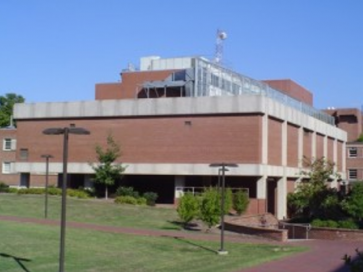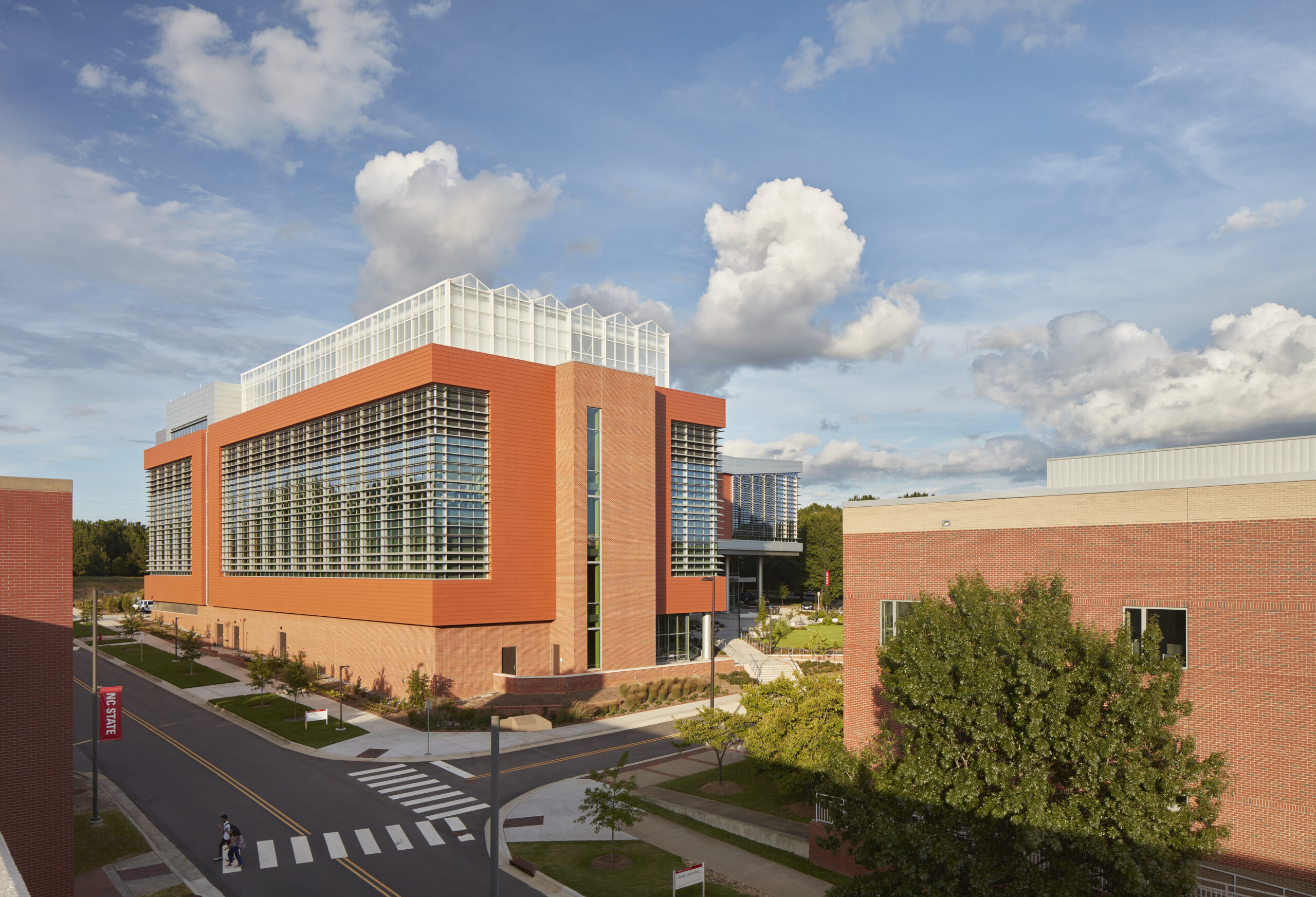The Phytotron
At NC State, we have a Phytotron with Plant Controlled Environmental Laboratories located on North Campus and Centennial campus. A Plant Controlled Environmental Laboratory is a facility for growing plants under various combinations of precisely controlled environmental conditions. The laboratories are designed for studies of the response of plants to their environment and many combinations of environmental factors can be studied simultaneously. We are able to control light quality, day length, temperature, humidity, CO2, water, nutrients, soil composition, etc.
The North Campus Phytotron first opened in May 1968 and after more than 50 years, has gone through major renovations to modernize the facility. Today, the North Campus Phytotron houses more than 70 growth chambers, four air conditioned rooftop greenhouses and a Biocontainment Lab with a greenhouse. It also has several laboratories including the NCSU Plant Transformation Laboratory.
The Centennial Phytotron is located in the Plant Science Building on Centennial campus, and is the sister building to the North Campus Phytotron. The Plant Sciences Building was opened in 2022 and is filled with cutting-edge technology to connect NC State’s research with other research stations across the world. It has even been awarded the Leadership and Energy Environmental Design certification! The Centennial Phytotron utilizes controlled environment laboratories the same way that the North Campus Phytotron does. This research facility boasts ten air conditioned rooftop biosafety level two greenhouses, a biosafety lab level three with a greenhouse, twenty growth chambers, and multiple laboratories. Four of the growth chambers are precision controlled Angstrom Engineering chambers.


Who can use the Phytotron? We provide services to all departments. Our facility is open to faculty, graduate and undergraduate students, post docs, commercial researchers, and researchers from other universities. Those who desire to use this facility must submit a proposal. If you are interested in using our facility please contact us and apply.
Our Mission
NC State Phytotron concentrates on applied and basic research related to agricultural problems encountered in the southeastern United States. The ability to control all phases of the environment allows inclusion of research dealing with all aspects of plant science.
